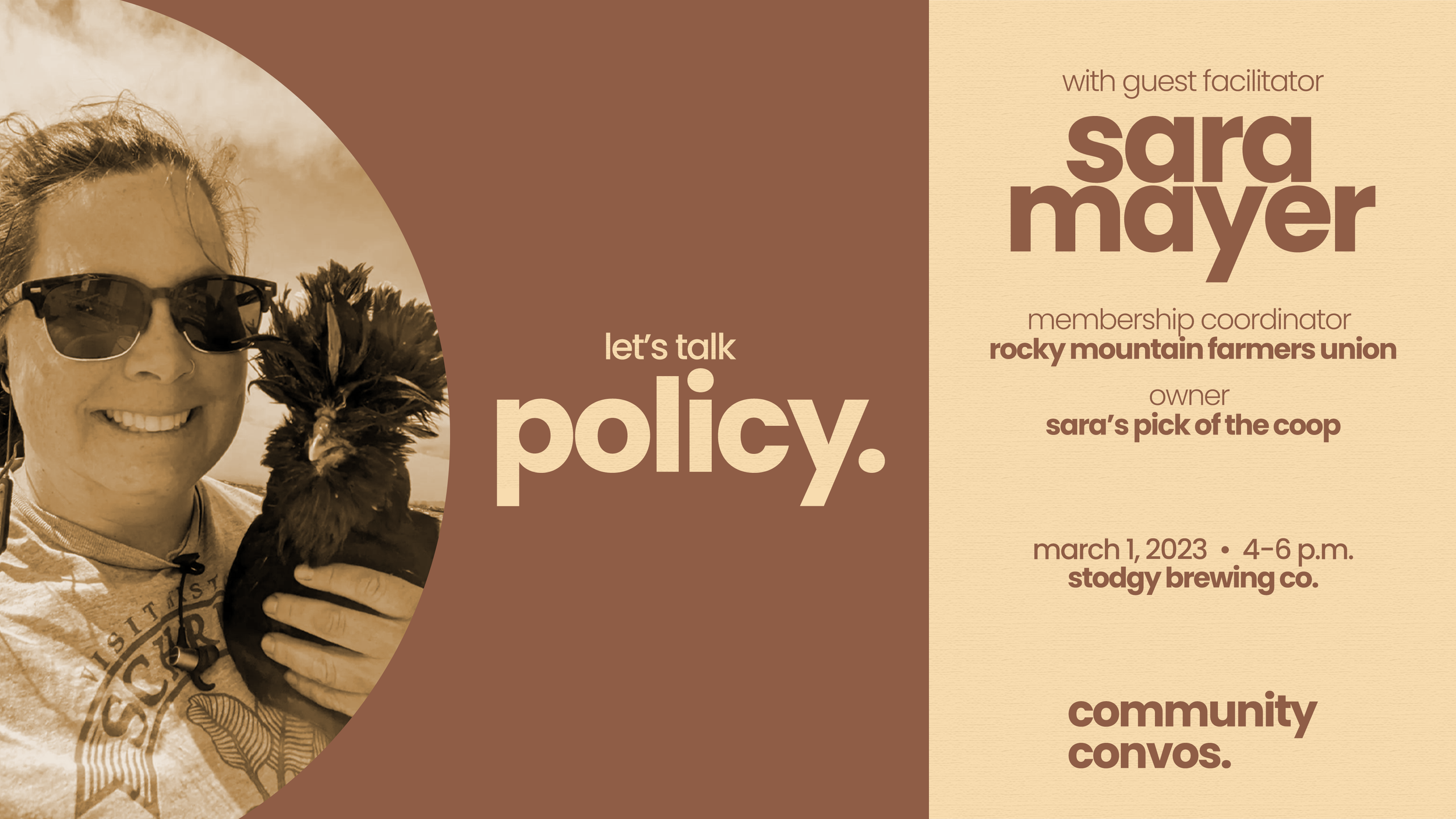Community Convos: Policy + RMFU with Sara Mayer & Tyler Garrett
Recap written by Carli Donoghue, Executive Director of the Northern Colorado Foodshed Project
Recap from Today’s Community Conversations with Alex Zeidner, Owner of Folks Farm & Seed: “Seeds and our relationship with vegetables”
Human relationships with seeds have been 10,000 years in the making! Different areas of the world developed unique methods of cultivation and seed propagation for over 10,000 years.
In the early 1900's, the production of hybrid varieties and seeds led to a 90% reduction in diversity of cultivated crops.
Alex worked with the MASA seed foundation in Boulder Colorado, with this mentorship he has been developing, growing, selling and sharing locally adapted vegetable, fruit and flower seeds. His process includes sowing and producing for the Front Range locality in which he grows them. His goal is to increase diversity and robustness of cultivars to cultivate crops that require less inputs and create less negative externalities.
He does not "baby" his plants, he culls and selects at all the critical stages of growth (germination, initial growth, yields, seed production) to produce hardy crops and interesting varieties that are best acclimated to the front range growing conditions.
He uses a ton of companion planting and successional planting to increase soil health and biodiversity. This includes beneficial insects and soil microbes! Producing seeds mean a whole lot of flowers, which he has seen change the insect diversity on the farm for the better. Large pest outbreaks and subsequent harvest loss has dramatically decreased as the farm arsenal of predatory, beneficial insects has improved and sustained throughout the years.
Some things to think about when producing locally adapted seeds:
Cross pollination can be an issue; you must be aware of the life cycle and promiscuity of the plants you are growing for seed. Unique spacing and covering certain plants is a must for a successful seed crop.
Be selective about your starting seed; some include patents or are already hybridized so the subsequent generations could be a bunch of weirdos if you are not careful, or you could get sued!
All about attuning your growing practices and care to your sense of place to work holistically within your environment.
Local adaptation is built in over generations of seed saving and showing your plants some "tough love". Only the best and toughest make it through to the seed saving stage.
Seeds provide a diversity of income for farmers willing to put in the work. They are shelf stable and can sell in diverse markets; to other farmers, or home gardeners. At a smaller scale, vegetable production is overall far more profitable than seeds. Some seed farmers sell to aggregators or other farms at a larger scale, but it can be a big investment so many folks don't do it or scale it up. Something to think about is how we can make it more economically viable to put more work into these kinds of seeds and spread their implementation in home gardens and farms.
Some seeds are not for sale, they are gifted and shared to those interested in reconnecting with their crops and putting the culture back in agriculture. Sale, share or trade of seeds is an important balance to share the wealth and spread these special seeds between and among communities.
What are your thoughts about today’s conversation? Any comments, suggestions, ideas, similarities? Comment below to add to the community conversation!
———————————
Website: https://rmfu.org/
Facebook
Where you can purchase seeds: Beavers Market, Fort Collins Nursery, Website, more to come!

